
Ignite the Spark Scholars Program
Building Capacity for Measuring and Studying Structural Racism
On July 17th, 2024, we announced the Spark Scholars Cohort! We received incredibly competitive applications from interdisciplinary scholars across the country, and we are thrilled with the final ISSP Cohort of six antiracist scholars who have now joined the program.
Igniting the Spark
Structural racism is a public health crisis, and it is a fixable problem. The Center for Antiracism Research for Health Equity (CARHE, pronounced "care") at the University of Minnesota School of Public Health was founded to explore, understand, and ultimately dismantle structural racism through research, community engagement, and narrative change. Developing and applying rigorous methods of measuring structural racism is a priority in our work.
To advance our understanding of the impact of structural racism on health, CARHE has launched the Ignite the Spark Scholars Program (ISSP). This one-time, 15-month program aims to build a critical mass of interdisciplinary scholars focused on measures and approaches to understanding and dismantling structural racism. Each scholar will receive $72,000 in grant support for a pilot study with a partner community organization. Throughout the program, Spark Scholars will engage in a supportive peer-learning community that fosters exchanges with CARHE and other leading scholars in the field while working from their home institutions.
The Spark Scholars Cohort
On July 17th 2024, we announced the selection of the ISSP Spark Scholars! We received incredibly competitive applications from interdisciplinary scholars across the country, and we are thrilled with the final ISSP Cohort of six antiracist scholars who have now joined the program.

Dr. Leia Belt, PhD, MA
Home Institution: University of California, Merced
Partner Organization: Iowa Black Doula Collective
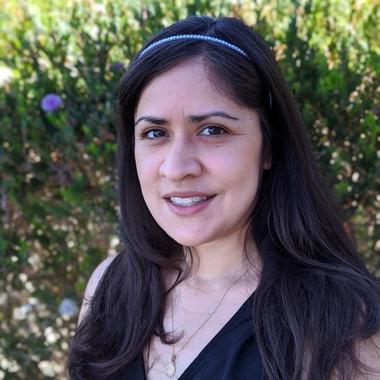
Dr. Marybel Gonzalez, PhD, MS
Home Institution: The Ohio State University College of Medicine
Partner Organization: Comité Organizador Latino de City Heights (COLCH)
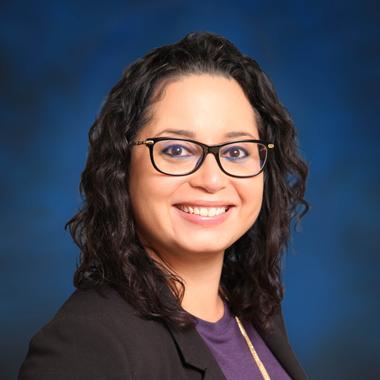
Dr. Alana LeBron, PhD, MSc
Home Institution: University of California, Irvine Public Health
Partner Organizations: Orange County Environmental Justice, Coalition of Orange County Community Health Centers, & GREEN-MPNA

Dr. Leah Lomotey-Nakon, PhD, MEd, MTS
Home Institution: Currently Vanderbilt University, to be Baylor University starting August 2024
Partner Organization: Homeland Heart
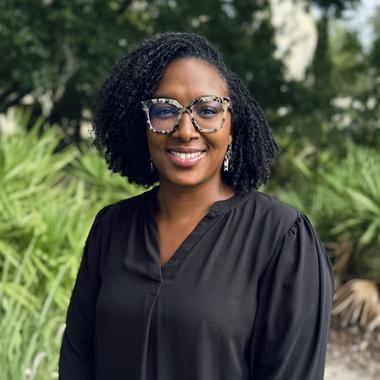
Dr. Dorian S. Odems, PhD, MPH, CHES
Home Institution: University of California, Davis
Partner Organization: Breast Friends Lactation Support Services
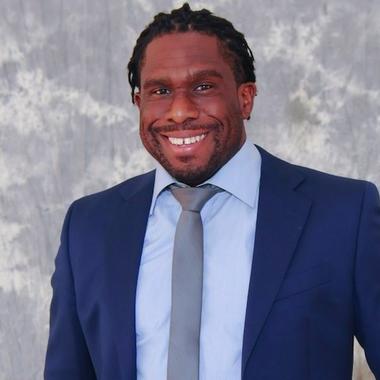
Dr. Mudia Uzzi, PhD, MSc
Home Institution: Johns Hopkins Bloomberg School of Public Health
Partner Organization: Newark Community Solutions
Program Overview
Mission and Vision
The mission of the ISSP is to build capacity among early and mid-career scholars (less than 10 years post-doctoral degree) committed to developing novel measures and approaches to studying the impact of structural racism on population health (e.g., measurement issues related to sampling, study design, data collection, construction and validation, and analysis of structural racism measures). We believe measures and approaches to studying structural racism and population health should be grounded in relevant theories and/or conceptual frameworks, usable by scholars, practitioners, policymakers, and community members, and designed with rigor and integrity.
Our vision is to expand our knowledge base on the impact of structural racism on health by creating learning communities of practice that provide space, time, and support for a new generation of scholars interested in dismantling structural racism through research, advocacy, and policy change. Each scholar will develop a plan that allows for mutually beneficial collaborations and the intellectual freedom to pursue individual research projects. We anticipate that the direction of each Spark Scholar’s project will vary based on their skill set and what they seek to learn and gain from the program.
The research community has historically led health research without input from communities. We recognize that such research plans require an agile approach that allows room for scholars to be responsive to the needs of communities and engage authentically with them. We will prioritize authentic community engagement and expect that scholars identify a community, population, and organization (e.g., 501c3) to partner with to bring their project to fruition to deepen community collaboration and expand the potential impact of their scholarship.
Eligibility and Review Criteria
The research community has historically led health research without input from communities. We recognize that such research plans require an agile approach that allows room for scholars to be responsive to the needs of communities and engage authentically with them. We will prioritize authentic community engagement and expect that scholars identify a community, population, and organization (e.g., 501c3) to partner with to bring their project to fruition to deepen community collaboration and expand the potential impact of their scholarship.
Specific eligibility requirements for the ISSP were:
- Holds a PhD or other doctoral degree, and has advanced (no more than 10 years post-doctoral degree career. This includes individuals who are postdoctoral researchers, tenure and non-tenure track faculty, and researchers working in state or local health organizations working in a variety of disciplines and areas
- Draws on existing partnerships with Community 501c3 or other community-based organizations. 501c3 organizations are also eligible, with or without a partnership with an academic institution or health care system in the United States
- Knowledge of the communities in which the scholar seeks to collaborate with and ability to authentically engage community members in their work
- Interest and prior track record in developing and applying measures of structural racism and conducting studies on the impact of structural racism on population health
- Shares interest in advancing antiracism research
- Able to produce an innovative, sound, and feasible project
- Has institutional capacity to manage subawards
Program Benefits
- Funding of up to $72,000 to support pilot studies on structural racism and population health (e.g, salary support for Principal Investigator, Co-Investigator, statistical and support staff) and other project expenses including consulting expenses, project development support, data acquisition, publication costs, community partner honorariums, and travel and accommodations to attend the annual convenings
- Dedicated time to be part of a supportive community of scholars interested in developing innovative methods and approaches for studying the impact of structural racism on population health
- Tailored training and support via seminars and professional development opportunities (e.g., traveling to national conferences, consultation with experts in the field, etc.)
- Generation of pilot data for independent grant applications to government funding institutions and private foundations
- Research exchanges with CARHE staff and other scholars, practitioners, and community partners engaged in antiracism research
Program Expectations
Spark Scholars will be asked to:
- Participate in Peer Learning Communities of Practice Facilitated by Spark Scholars and CARHE Staff
Every month, scholars will meet remotely to participate in Peer Learning Communities of Practice gatherings. The Spark Scholars will facilitate these gatherings to foster ownership and agency and discuss a variety of topics, e.g., project-specific issues and challenges, developing and sustaining authentic community collaborations. The main purpose of these gatherings will be to create space for emerging and mid-career scholars to share thoughts and perspectives, and to build a supportive community.
- Engage in SPARK Seminars and Workshops
Seminars and workshops (quarterly) will offer Spark scholars an opportunity to learn about research on structural racism conducted by researchers within and outside of CARHE. Seminars and workshops will expose Spark scholars to other researchers engaged in anti-racism research practices and critically reflect on the complexity and challenges of measuring structural racism in health research.
- Attend two Annual National Antiracism Convenings and Retreats Sponsored by the Spark Scholars Program and CARHE
These gatherings will bring together Spark Scholars, other scholars, and community partners to generate discussion on how to advance antiracism research, particularly as it relates to measuring structural racism and its interplay with health equity. Convenings will be geared towards knowledge sharing and training early-career scholars who are interested in specific methods and topics of interest.
Spark Scholars are expected to include travel costs and expenses to attend the in-person annual convening in their budgets. The submitted budget may also include travel costs and expenses for community partners to attend the annual convening meetings.
Scholars will participate in an in-person retreat one day before the Annual Convening. The retreat will serve as a safe space for scholars to participate in interactive sessions designed to foster collaboration, network, exchange ideas, and build professional relationships that can lead to future research studies and academic partnerships. The agenda and content of the retreat will prioritize the professional and personal needs of the scholars. Scholars are expected to engage in discussions and knowledge-sharing sessions that will enhance their research experience and develop their professional skills.
- Advance Research on Measuring and Studying Structural Racism
This may include sharing study findings in peer-reviewed publications, the gray literature, policy briefs, and presentations to different audiences including researchers, policymakers, policy advocates, and community partners.
- Complete their application project within the grant period September 2024 - November 2025
- Submit a final project and a financial report one month following the end of the grant
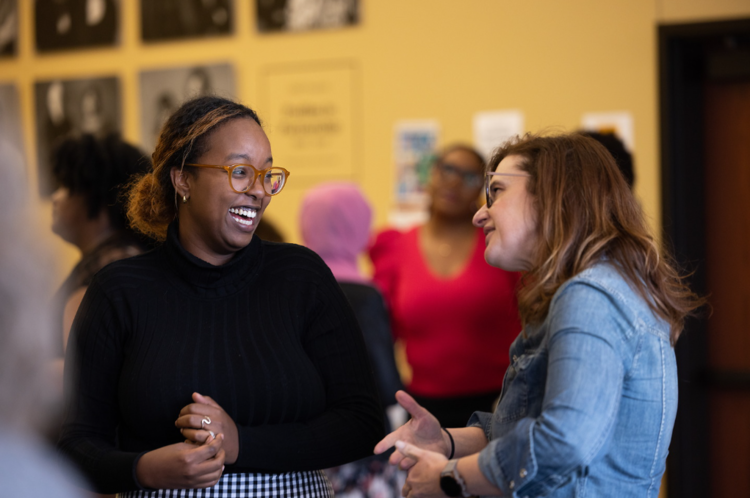
FAQs
What kind of projects were funded?
We prioritized applications that went beyond disparities research as evidence of structural racism, and:
- Focus on developing novel measures and approaches to studying the impact of structural racism on population health (e.g., measurement issues related to study design, sampling, data collection, construction and validation, and analysis of structural racism measures)
- Have identified a community, population, or organization (e.g., 501c3) to partner with on the project
- Are timely, novel, and may be high risk to not receive funding by traditional funding sources or the agencies, e.g. NIH, CDC
You can learn more about the types of work by exploring the Spark Scholar's partner organizations, and we will be publishing profiles and updates on the work over the course of the 15-month program.
What is the the scholarly background for this program?
We encouraged applicants to the ISSP and any scholars interested in antiracist praxis to become familiar with the following selected scholarship:
- Adkins-Jackson PB, Chantarat T, Bailey ZD, & Ponce NA. Measuring structural racism: a guide for epidemiologists and other health researchers. American Journal of Epidemiology. 2022 Apr;191(4):539-47.
- Dean LT & Thorpe Jr RJ. What structural racism is (or is not) and how to measure it: clarity for public health and medical researchers. American Journal of Epidemiology. 2022 Sep;191(9):1521-6.
- Groos M, Wallace M, Hardeman R, & Theall KP. Measuring inequity: a systematic review of methods used to quantify structural racism. Journal of Health Disparities Research and Practice. 2018;11(2):13.
- Hardeman RR, Homan PA, Chantarat T, Davis BA, & Brown TH. Improving the measurement of structural racism to achieve antiracist health policy. Health Affairs. 2022 Feb 1;41(2):179-86.
- Krieger N. Measures of racism, sexism, heterosexism, and gender binarism for health equity research: from structural injustice to embodied harm-an ecosocial analysis. Annual Review of Public Health. 2019 Nov 25;41:37-62.
- Riley AR. Neighborhood disadvantage, residential segregation, and beyond—lessons for studying structural racism and health. Journal of Racial and Ethnic Health Disparities. 2018 Apr;5:357-65.
Want to learn more?
Please contact the Spark CARHE email ([email protected]) for more information on ISSP.
The Ignite Spark Scholars Program (ISSP) is funded by an award from the Robert Wood Johnson Foundation (R. Hardeman, PI). Dr. Rachel Hardeman is the Principle Investigator for the ISSP, and Dr. Rhonda Jones-Webb is the Administrative Director.
This page was last updated on Thursday, 2024 Jun 18.